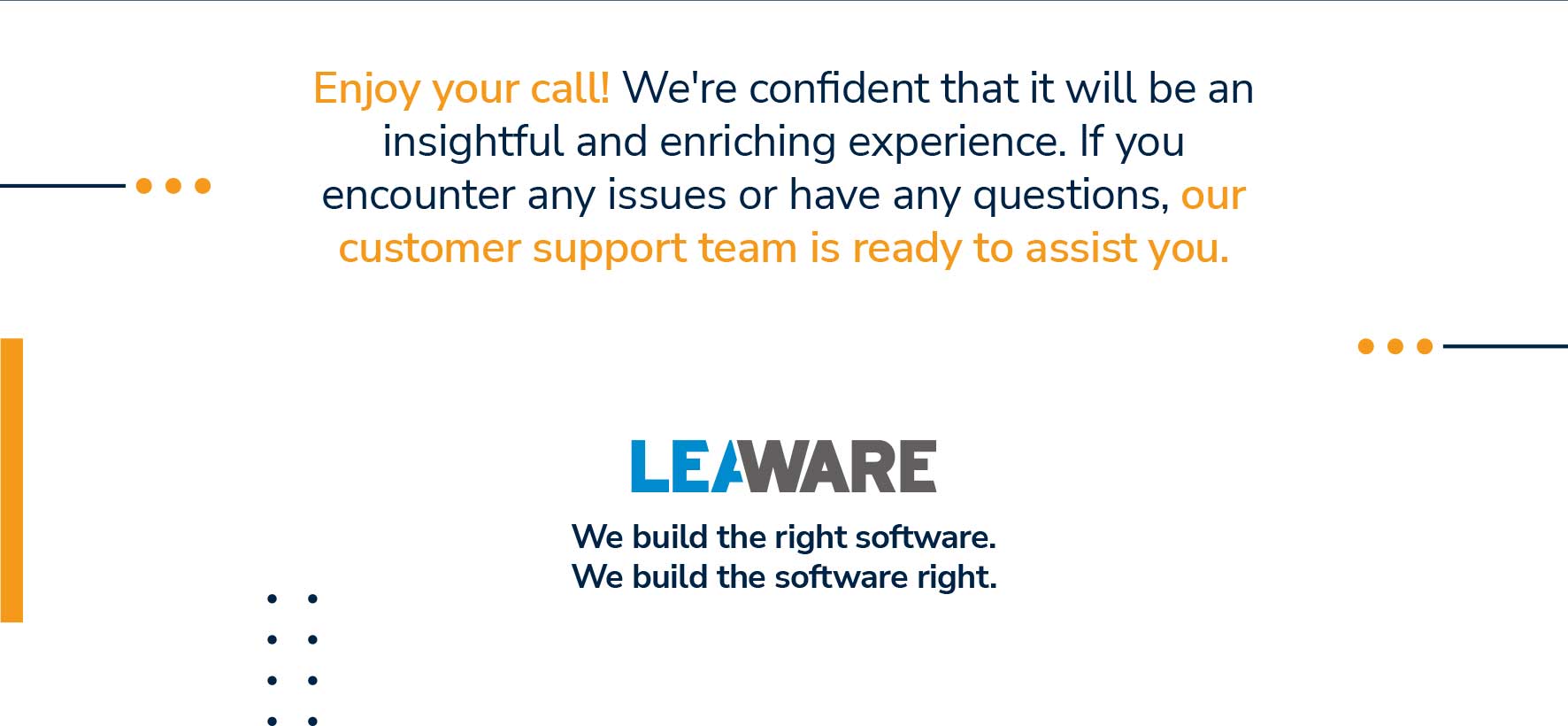Embracing the Future: Low-Code and No-Code Development
Hello and welcome! I’m Carlos from Leaware, your guide to the cutting-edge world of low-code and no-code development. In today’s digital era, these technologies are not just trends; they’re revolutionizing how we approach software creation.
Unpacking Low-Code and No-Code Development
At its essence, low-code and no-code development change the way software is created. These platforms use graphical interfaces, enabling users to build applications by dragging and dropping pre-built components, much like assembling a puzzle. This approach democratizes software development, allowing individuals from various backgrounds to create functional applications without in-depth programming knowledge.
The Evolution and Significance
Software development has evolved from being a domain for the few with deep programming knowledge to a more inclusive field, thanks to low-code and no-code platforms. These tools have made software development accessible, enabling rapid prototyping and breaking down traditional barriers. This democratization empowers creators, from startups to large enterprises, fostering a surge in digital solutions tailored to specific needs.
Advantages and Business Implications
These platforms are more than time-savers; they enable businesses to innovate like never before. They reduce financial barriers and empower businesses with agility, crucial in today’s fast-evolving digital landscape. This democratization brings diverse perspectives to the forefront, driving creativity across various sectors.
Example:
Streamlining Restaurant Operations with a Custom App
Situation: A small but popular local restaurant, “The Green Fork,” faced challenges managing their growing customer base. They needed a solution to streamline reservations, orders, and customer feedback but lacked the resources for expensive software development.
Solution: The Green Fork turned to a low-code development platform. Without any prior coding experience, the restaurant’s manager, Sophia, was able to build a custom app within a week. The app included features for online reservations, menu browsing, and customer feedback.
Outcomes:
- Increased Efficiency: The app automated reservation and ordering processes, reducing wait times and improving customer satisfaction.
- Cost-Effective: Developing the app through a low-code platform was significantly cheaper than hiring a software developer, saving The Green Fork thousands of dollars.
- Agility: The app allowed the restaurant to quickly adapt to customer preferences and feedback. New features, like a loyalty program, were added easily, enhancing customer engagement.
- Empowerment: Sophia, who had no prior technical background, could implement and manage the app, showcasing the democratization of technology. Her unique understanding of the restaurant’s needs led to a more tailored and effective solution.
Business Implications:
- Innovation: The Green Fork could innovate beyond traditional restaurant services, differentiating themselves in a competitive market.
- Financial Accessibility: Low-code platforms enabled the restaurant to leverage technology that was previously out of reach financially.
- Diverse Perspectives in Tech Solutions: The platform allowed non-technical staff to contribute ideas and solutions, bringing varied perspectives to the technology development process.
Conclusion: The Green Fork’s experience illustrates the transformative potential of low-code and no-code platforms, not just as a time-saving tool, but as an enabler of innovation, agility, and inclusivity in the business world.

Ready to transform your business with low-code and no-code development? Don’t miss this opportunity to innovate and streamline your operations. At Leaware, we are offering a free consultation to help you harness the power of these cutting-edge technologies. Whether you’re a startup or an established enterprise, our expertise will guide you through your digital transformation journey.
Diving into Industry Impact
Low-code and no-code development platforms are revolutionizing industries by enabling rapid, customized digital solutions. Here’s a deeper look into how these platforms are impacting various sectors:
- Healthcare: Enhancing Patient Care and Management
Example: A mid-sized clinic used a no-code platform to develop a patient management system. This system streamlined appointment scheduling, patient records management, and remote consultations. The platform also enabled the creation of a patient portal for accessing medical records and telemedicine services, significantly improving patient engagement and care.
- Retail: Revolutionizing E-Commerce and Customer Engagement
Example: A boutique clothing store utilized a low-code platform to build a custom e-commerce website. This site integrated inventory management, online payment systems, and personalized marketing tools. The platform also enabled the store to create an AI-based recommendation engine, enhancing the online shopping experience and increasing sales.
- Education: Transforming Learning Experiences
Example: An educational institution developed interactive learning tools using a low-code platform. These tools included virtual labs, interactive quizzes, and collaborative platforms, making learning more engaging and accessible for students. The platform also allowed for the integration of analytics to track student performance and engagement.
- Manufacturing: Streamlining Operations and Supply Chain Management
Example: A manufacturing company implemented a no-code solution to optimize its supply chain management. The platform enabled real-time tracking of inventory, automated order processing, and predictive maintenance schedules for machinery, leading to increased operational efficiency and reduced downtime.
- Finance: Enhancing Customer Services and Compliance
Example: A regional bank used a low-code platform to develop custom financial management tools for its clients. These tools included budgeting applications, investment tracking, and secure online transaction capabilities. The platform also helped the bank in maintaining compliance with financial regulations through automated reporting tools.
These examples across industries demonstrate the extensive impact of low-code and no-code development platforms. By enabling rapid, cost-effective, and customized digital solutions, these platforms are not just transforming businesses but are also reshaping entire industries.
The Benefits Beyond Speed
Beyond speed and simplicity, these platforms offer cost-effectiveness and flexibility. They reduce financial barriers associated with traditional software development and enable rapid response to market trends. This democratization fosters a culture of innovation and creativity, allowing non-technical individuals to create solutions for their fields.
Looking to stay ahead in the rapidly evolving digital landscape? Leaware is your ideal partner in navigating the world of low-code and no-code development. We’re offering a complimentary consultation to help you identify the best solutions for your unique business needs. From healthcare to finance, education to retail, our team is equipped to bring your digital aspirations to life. Secure your voucher for a free consultation with Leaware today and start your journey towards seamless, innovative, and efficient digital solutions!
Addressing Challenges and Considerations
While low-code and no-code platforms offer numerous advantages, it’s crucial to acknowledge and address their potential limitations and challenges. Understanding these challenges is key to effectively utilizing these platforms while maintaining control, security, and scalability.
- Customization Limitations
- Depth of Customization: While these platforms provide a range of pre-built components, they may not offer the depth of customization needed for highly specific or niche requirements.
- Integration with Legacy Systems: Integrating custom applications with existing legacy systems can be challenging, potentially limiting the seamless flow of data and processes.
- Example: A company may find that the platform’s pre-built components are insufficient for a specialized process unique to its operations, requiring additional customization through traditional coding.
- Scalability Concerns
- Handling High Volume and Complexity: Some low-code and no-code platforms may struggle to efficiently manage applications with a high volume of users or complex transaction processing.
- Future Growth: As businesses grow, their technological needs evolve. A platform that suits a small enterprise might not scale effectively for larger operations.
- Example: A rapidly growing e-commerce platform might face performance issues as user traffic and transaction volumes exceed the capacity of the initial no-code solution.
- Security and Compliance
- Data Protection and Privacy: Ensuring robust security measures and compliance with data protection regulations can be challenging, especially for platforms that offer limited customization in security features.
- Example: A healthcare application developed on a no-code platform must strictly adhere to HIPAA regulations, which may require additional security layers not natively provided by the platform.
- Governance and Control
- Oversight on Development: The ease of use of these platforms can lead to unregulated app development within an organization, potentially resulting in a fragmented technology landscape.
- Maintaining Standards: Ensuring that all applications developed align with business goals and IT standards requires a structured governance approach.
- Example: A company may find disparate departments creating multiple apps for similar purposes, leading to inefficiencies and inconsistencies.
Future Trends and Leaware’s Role
The future of low-code and no-code development is exciting, with trends towards more sophisticated platforms integrating AI and big data technologies. Leaware is positioned to help businesses harness these platforms, offering expertise in selecting the right platform and aligning it with business goals, ensuring ongoing support and maintenance.
Conclusion
Low-code and no-code development platforms are reshaping the digital landscape, breaking down barriers, and enabling rapid adaptation. As these technologies evolve, they promise to play a pivotal role in digital innovation. With Leaware as your partner, you can confidently navigate this future, unlocking the full potential of these powerful platforms.
If you’re interested in exploring how low-code and no-code development can benefit your business, or if you’re ready to start your journey with these transformative technologies, reach out to us at Leaware for a free consultation. Let’s turn your digital ideas into reality together!

Germany, Belgium
+49 24023893009
ask@leaware.com
United Kingdom
+44 2081900354
ask@leaware.com
Denmark
+45 21671778
ask@leaware.com
Poland
+48 223781522
ask@leaware.com
Serbia
+38 1653980110
+38 163332268
ask@leaware.com
Lea sp. z o.o. z siedzibą w Toruniu, ul. Włocławska 167, 87-100 Toruń, wpisana do rejestru przedsiębiorców prowadzonego przez Sąd Rejonowy w Toruniu, VII Wydział Gospodarczy Krajowego
Rejestru Sądowego pod nr KRS 835659, NIP 9522205303, wysokość kapitału zakładowego: 5 000 zł
Germany, Belgium
+49 24023893009
ask@leaware.com
United Kingdom
+44 2081900354
ask@leaware.com
Denmark
+45 21671778
ask@leaware.com
Poland
+48 223781522
ask@leaware.com
Serbia
+38 1653980110
+38 163332268
ask@leaware.com
Lea sp. z o.o. z siedzibą w Toruniu, ul. Włocławska 167, 87-100 Toruń, wpisana do rejestru przedsiębiorców prowadzonego przez Sąd Rejonowy w Toruniu, VII Wydział Gospodarczy Krajowego
Rejestru Sądowego pod nr KRS 835659, NIP 9522205303, wysokość kapitału zakładowego: 5 000 zł



